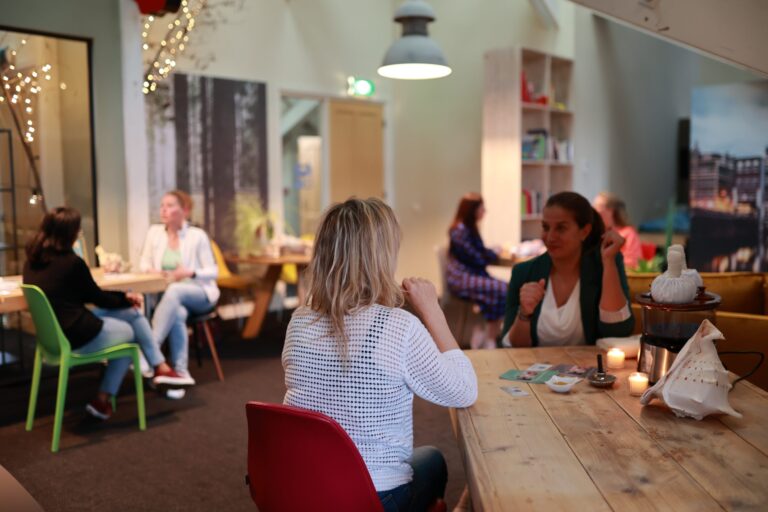If you’re planning to bring a baby into this world, it’s natural to prepare as much as possible before your baby arrives.
Our bodies and minds go into overdrive when the nesting mode arrives, yet even before that biologically driven cleaning spree,
we are mentally and physically preparing for our new family.
A common mistake can happen here. In a rush to sort everything out, we forget to stop and think about what our baby will experience during their life’s beginning.
How do you plan for your first days and weeks as a new mother and family? And how do you plan to make the most of your kraamvisite?

Thinking about what your baby experiences in their first days, weeks, and months after the birth is important for you, your partner, and your baby. It’s easy to understand how we can disregard this crucial step. You’re so busy ensuring everything is as prepared as possible for the birth, the house is child-proof, insurance and legal things are in order, nursery waiting lists have been signed up to and so much more. Thinking about visitors is probably the last thing on your mind.
Depending on the family and network you have around you in the Netherlands, keeping control of the wave of well-wishers can be difficult to navigate. Working in the kraamzorg, I have the privilege to witness special moments that bring a tear to my eye. A visitor holds the baby, looks into their eyes, and welcomes them to the family. I’m there for the emotional introductions where I see the deep love for the baby, the mother, and the family.
I’ve also been there for less pleasant affairs. One example is when individuals arrive without an invitation, forcing themselves into the space. Another situation may be when visitors overstay their welcome, causing stress for mum which, in turn, unsettles the baby.

In preparation for the big day, I always ask “Do you have visitors planned?” I then follow this up in my best Dutch and ask
“For who are they coming?”:
The answer is mostly for ‘me’ (the new mother). Sometimes it’s for them, the visitors.
Yet, never is the answer for the baby!
Strange right? They invited themselves to visit a family in the most important week of the baby’s life!
Visiting during these formative weeks can give the parents a lot of stress when they should just be focusing on getting to know the baby.
Frequently new parents may make choices that aren’t in the best interest of the baby to avoid making their guests uncomfortable.
One example is that some mothers don’t want to do skin-to-skin because someone is visiting (it’s common for your boss to pay a visit during your first weeks as a new mother).
Another case is that mothers may give their babies a bottle so they don’t have to feed in public – even inside their own house!

During Covid, doors were shut. At the pandemic’s peak, the only persons allowed in were the kraamzorg.
It was extremely challenging for new families, forced to manage everything alone.
However, the number of people who successfully breastfeed increased dramatically.
Why?
One unexpected benefit was that parents had more time than ever to get to know the baby, giving way to more skin-to-skin contact which accelerated recovery for both parents.
In some ways, these times could be seen as the perfect environment to spend your first week with your baby.
Of course, the positive effects of the love and support you get from your family and friends can never be underestimated.
But looking back on my time in Kraamzorg supporting new mothers and families in the Netherlands both during and after Corona, I now see how important kraamvisite is and how important it is to be in control of your experience.
Want to know more about kraamvisite or any other aspect of raising a family in the Netherlands? Head to https://tinyexpat.nl/ for more information.